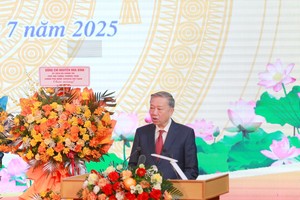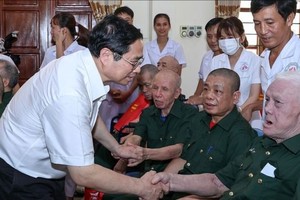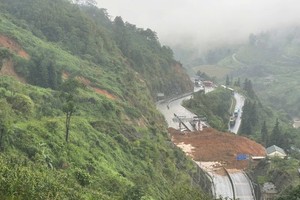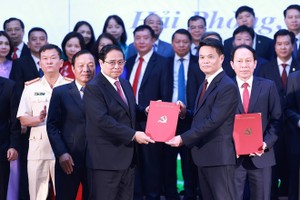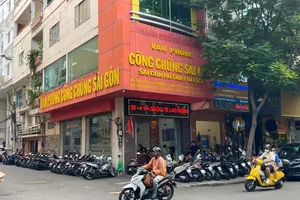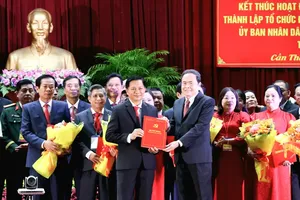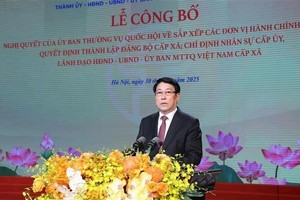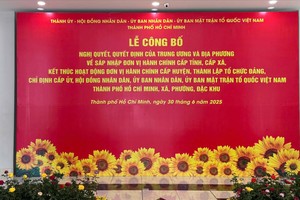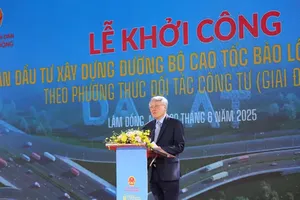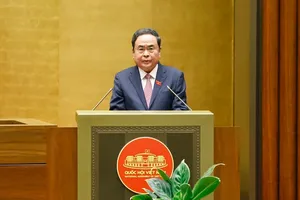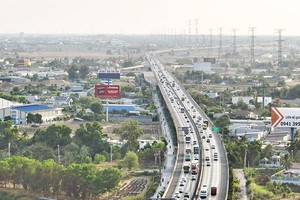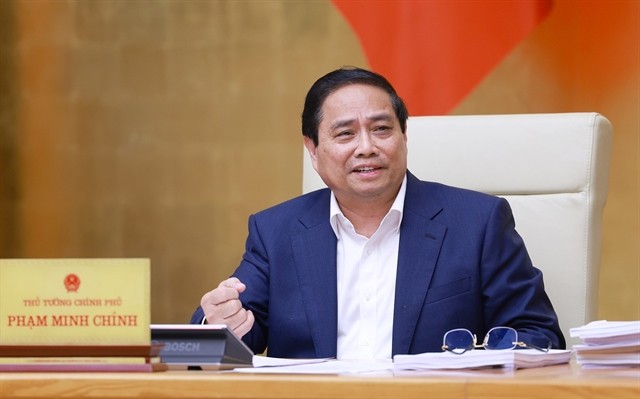
Prime Minister Pham Minh Chinh emphasised the need for a fundamental shift in mindset – from a passive approach focused on management that restricts anything unmanageable, to a proactive and flexible approach that fosters development and serves the people and businesses.
He made the remarks at the closing of the Government’s law-building session for May on Thursday.
At the meeting, participants gave opinions on six legislative items. These included the Law on Enforcement of Custody, Temporary Detention and Travel Bans; the amended Law on Enforcement of Criminal Judgements; the amended Law on Thrift Practice and Wastefulness Combat; the amended Law on Food Safety; the Law on Population; and the amended Law on Judicial Assessment.
Government members proposed that the laws are built with an aim at improving governance in several areas, including pre-trial detention, temporary custody and criminal sentence execution. The discussions also covered enhancing the quality of judicial expertise, ensuring the effectiveness of State management and maintaining humanitarian principles in prisoner education and rehabilitation.
The PM asked the drafting agencies to fully consider the opinions of Government members while continuing to seek input from experts, scientists, affected groups, as well as listening to feedback from the public and businesses to refine the legislative projects.
Regarding opinions contributed to the Law on Enforcement of Criminal Judgements (amended); the Law on Enforcement of Custody, Temporary Detention and Travel Bans (amended); and proposals to formulate the Law on Judicial Assessment (amended), PM Pham Minh Chinh concurred with the provision for formalising prisoner labour, viewing it as a means of rehabilitation.
On the issue of forensic assessment, he agreed with the Ministry of Public Security's proposals for matters requiring specialised expertise. He emphasised that agencies already handling complex cases effectively should continue their work, while forensic assessment should be further socialised.
Regarding the proposal to develop the Law on Thrift Practice and Wastefulness Combat, the Prime Minister suggested establishing May 31 as an annual national campaign day to promote thrift and combat wastefulness. He also called for stronger decentralisation and delegation of authority to enhance efficiency in preventing waste.
For the draft Law on Food Safety, the PM underscored its direct impact on public health and safety. He emphasised that the Ministry of Health should take the lead in drafting the law, while other ministries and sectors should collaborate to ensure strict management while fostering development.
Regarding the Law on Population, the PM emphasised the need for policies and institutional reforms to remove bottlenecks and facilitate the transition from population planning to population development. The goal is to prevent population ageing, while ensuring both the quantity and quality of the population.
He also stressed that ministers and heads of agencies must prioritise allocating the highest level of resources and take direct leadership in institutional development. They are determined to address institutional bottlenecks within 2025 and proactively collaborate with National Assembly bodies to review and improve the quality of legislative documents.
The Prime Minister emphasised that the process of drafting and improving legislation must institutionalise the Party's policies and directives.
PM Pham Minh Chinh called for innovation in legislative development, focusing on thorough decentralisation and delegation, accompanied by appropriate resource allocation and the design of oversight mechanisms. He insisted on resolutely cutting and simplifying unnecessary administrative procedures.
Furthermore, he instructed ministers to present explanations and reports on legislative matters at the 9th session of the 15th National Assembly for review and approval. He also directed ministries and agencies to prepare legislative proposals for submission at the 10th session, ensuring both timeliness and quality.

